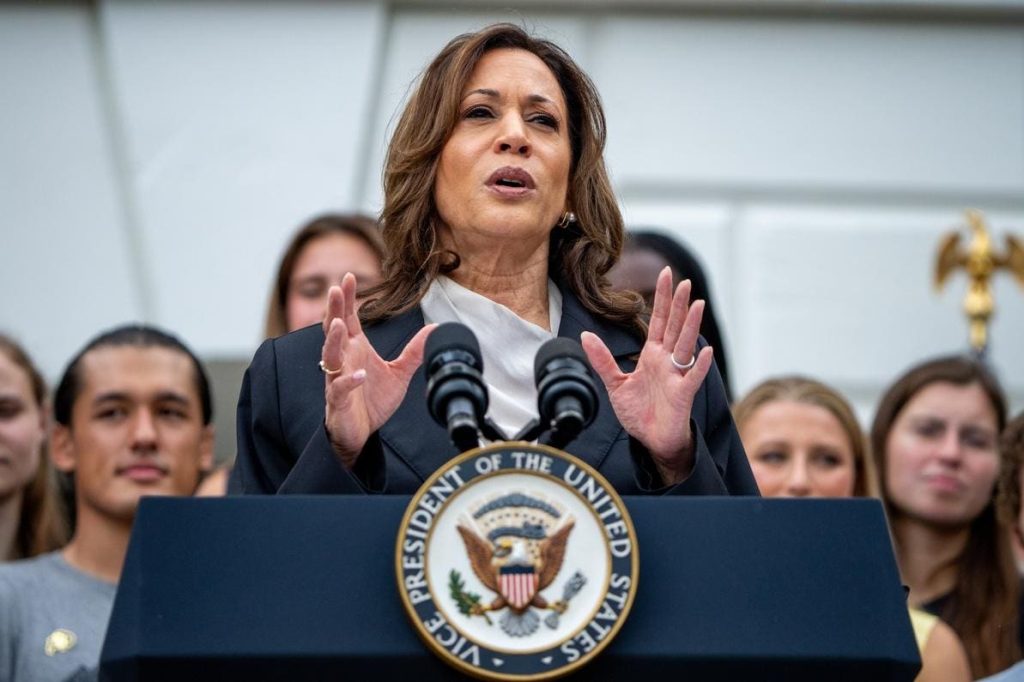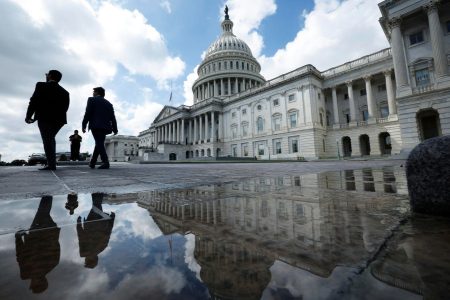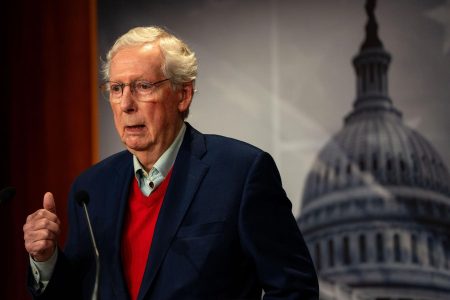President Joe Biden’s historic decision to withdraw from the 2024 presidential election has left Democrats beginning to debate what the future of the party should look like. While coming to voters with a new candidate at the top of the ticket, Democrats should also come to them with new ideas.
Vice President Kamala Harris — now the party’s presumptive nominee — should take the opportunity to not only embrace the president’s many accomplishments but also craft a governing agenda that improves on some areas where he could have done better. A new report published Tuesday by my colleagues at the Progressive Policy Institute (PPI) and I, titled Paying for Progress: A Pragmatic Blueprint to Cut Costs, Boost Growth, and Expand American Opportunity, offers one possible framework for that agenda.
By many measures, Biden had an extremely successful presidency. Under his watch, the U.S. economy experienced its longest period with an official unemployment rate at or below 4% since the 1960s. He also signed into law several major pieces of economic legislation, such as the Infrastructure Investment and Jobs Act (also known as the Bipartisan Infrastructure Law) and the Inflation Reduction Act — the most significant one-time investment in boosting the clean-energy economy of any government ever. These historic public investments will help lay the foundation for higher economic growth for generations to come.
But simply campaigning to continue Biden’s economic agenda could be a grave mistake for his successor. Even before the disastrous debate performance that ultimately ended his campaign, Biden was losing — and his economic policies are likely a big reason why. Polling conducted by PPI found that working-class voters, who represent the decisive swing vote in the pivotal states that determined the winners of the last two presidential elections, overwhelmingly saw inflation as the biggest challenge facing the country and believed overspending during the Biden administration was the primary cause of it. When the president talked about his accomplishments, what many of these voters heard was, “look how much of your money I am spending,” and they didn’t like it.
Voters aren’t wrong to be concerned about the federal government’s finances. For two consecutive years, the federal government has spent roughly $2 trillion more than it raised in revenue. Such massive borrowing might have made sense if it was necessary to support the economy through a recession or other unforeseen emergency, but it cannot possibly be justified given the record-low unemployment brought about by the Biden economy. Several independent studies have concluded this overspending increased inflation by two to four percentage points in the aftermath of the COVID-19 pandemic and helped push interest rates higher than at any point since 2000.
As a result, the nonpartisan Congressional Budget Office (CBO) projects the federal government is now on track to spend 3.4% of gross domestic product (GDP) just servicing the national debt next year — the highest level in U.S. history, and more than it spends on national defense. Even worse: CBO projects this spending will roughly double over the next 30 years if current policy continues unchanged.
These trends pose a particular challenge for progressives who believe our government should be doing more to solve the nation’s many social and economic problems. Voters are unlikely to support expanding the role of a government that they believe can’t even pay for the promises it’s already making. But rather than addressing that concern, Biden generally reinforced it.
Before withdrawing from the 2024 presidential race, Biden made several shortsighted pledges on taxes and spending that together were incompatible with fiscally sustainable governance. As an analysis I published earlier this year showed, even taxing income at the maximum possible level consistent with Biden’s tax pledges would be insufficient to support his administration’s proposed spending levels without debt continuing to grow faster than the economy.
Fortunately, Harris is not obliged to adopt all of Biden’s policy positions wholesale just because she served as his vice president — after all, the Biden administration’s policies have often deviated from those of the Obama administration, in which he served as vice president. As Harris herself likes to say: “What can be should be unburdened by what has been.”
Harris can offer the country a new vision of progressivism that is fiscally prudent and tackles inflationary pressures more aggressively than has the current administration. Taking this approach would present voters with a stark contrast to the budget-busting, inflationary economic platform Republicans adopted at their national convention last week and the far-right Project 2025 agenda being championed by former Trump administration officials.
PPI’s economically pragmatic “Paying for Progress” blueprint offers an alternative vision that would raise enough revenue to fund our government through a tax code that is simpler, more progressive, and more pro-growth than current policy. It includes innovative ideas to modernize our nation’s health-care and retirement programs so they better reflect the needs of our aging population. It would invest in the engines of American innovation and expand access to affordable housing, education, and child care to cut the cost of living for working families, thereby fulfilling many of the uncompleted objectives from the Biden administration’s Build Back Better agenda. And it would rationalize federal programs and institutions so that our government spends smarter rather than merely spending more.
If fully enacted during the first term of a Harris administration, the recommendations in this report would put the federal budget on a path to balance within 20 years. But Harris need not embrace the whole blueprint in its entirety — adopting just half of the blueprint’s recommended savings would be enough to prevent the national debt from growing faster than our economy, which most economists consider to be the measure of a fiscally sustainable budget.
Demonstrating to voters that she has an ambitious vision to cut costs, boost growth, and expand American opportunity – along with a realistic plan to pay for it – would help Harris restore confidence in the Democrats’ ability to tackle big problems and create a more prosperous society for all.
Read the full article here










